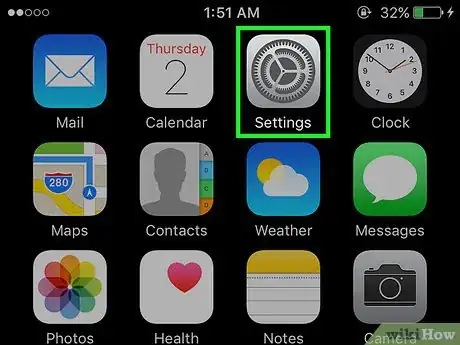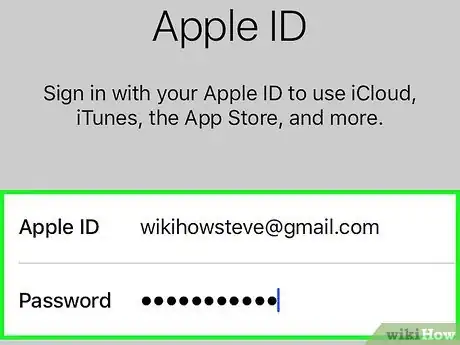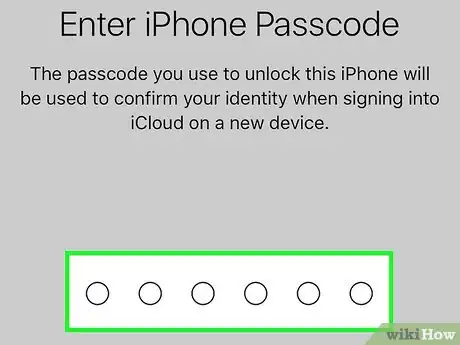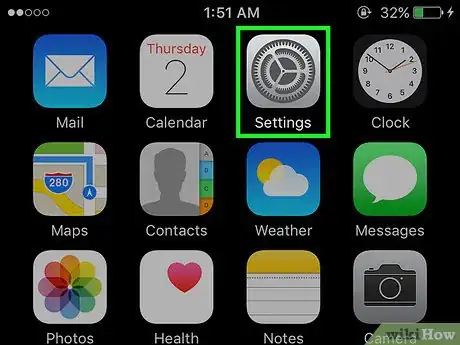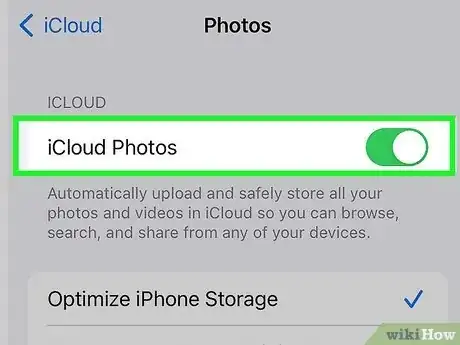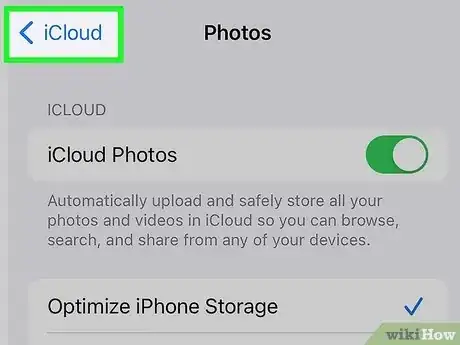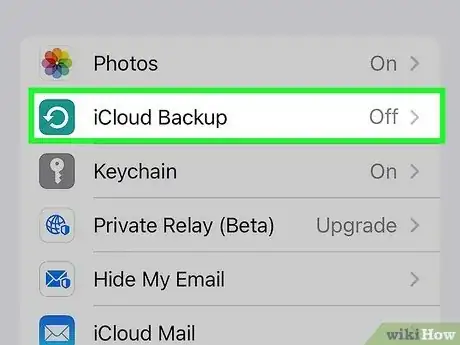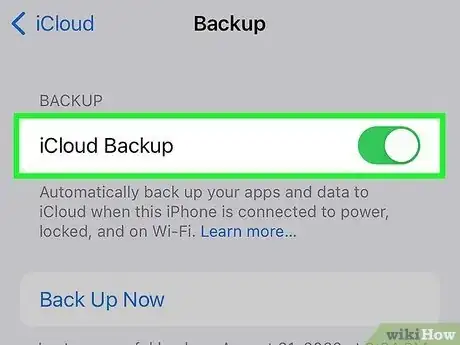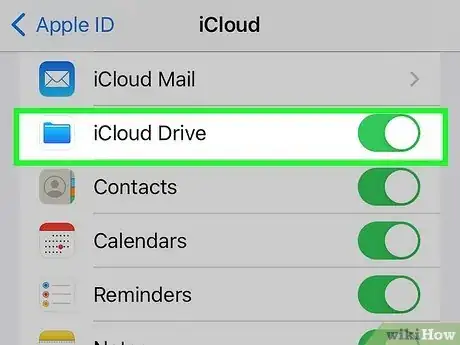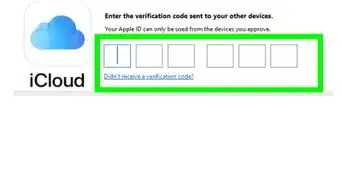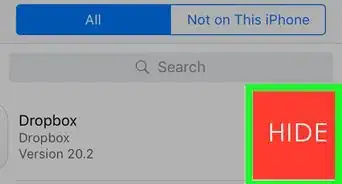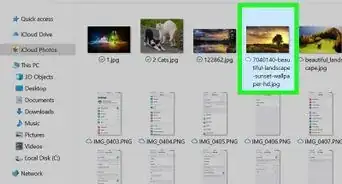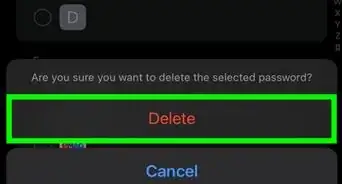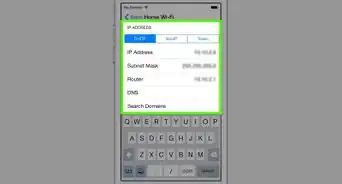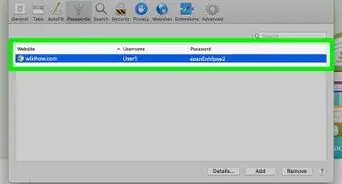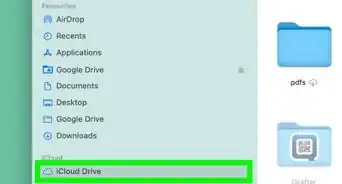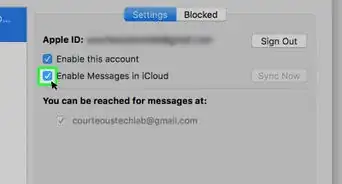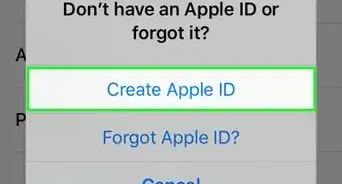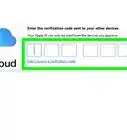This article was written by Gonzalo Martinez and by wikiHow staff writer, Darlene Antonelli, MA. Gonzalo Martinez is the President of CleverTech, a tech repair business in San Jose, California founded in 2014. CleverTech LLC specializes in repairing Apple products. CleverTech pursues environmental responsibility by recycling aluminum, display assemblies, and the micro components on motherboards to reuse for future repairs. On average, they save 2 lbs - 3 lbs more electronic waste daily than the average computer repair store.
The wikiHow Tech Team also followed the article's instructions and verified that they work.
This article has been viewed 179,339 times.
Did you know that as soon as you get an iPhone, iPad, or Mac, you get access to iCloud? But how? When iCloud is enabled, all your Apple devices (like your iPhone, iPad, and Mac) and most of your data (like contacts, email, and files) are all synced. This wikiHow article teaches you how to set up Apple's cloud-based storage, iCloud.
Things You Should Know
- Before you can access any iCloud documents on your iPhone or iPad, you need to sign into your Apple ID.
- After you sign in, turn on any iCloud services that you want to use, like Find My, or Keychain.
- Find your iCloud documents in the appropriate app or in the Files app.
Steps
Signing in to iCloud
-
1Open Settings. It's a gray app that contains an image of gears (⚙️) and is typically found on your home screen.
- To set up iCloud, you need access to your Apple ID.
-
2Tap Sign in to your (device). It's at the top of the menu.[1]
- If you are running an older version of iOS, instead tap iCloud.
Advertisement -
3Enter your Apple ID and password.
- If you don't have an Apple ID, tap Don't have an Apple ID or forgot it? below the password field on the screen, and follow the on-screen prompts to set up your free Apple ID.
-
4Tap Sign In. It's in the upper-right corner of the screen.
- The screen will intermittently display the message "Signing into iCloud" as it accesses your data.
-
5Enter your device's passcode. This is the unlock code you established for your device when you set it up.
-
6Merge your data. If you'd like the calendars, reminders, contacts, notes, and other data stored on your device to be merged with your iCloud account, tap Merge; if not, tap Don't Merge.
Syncing Data to iCloud
-
1Open Settings. It's a gray app that contains an image of gears (⚙️) and is typically located on your home screen.
- Do this part after you've signed in to iCloud on your iPhone or iPad.
-
2Tap your Apple ID. It's the section at the top of the screen that contains your name and image if you've added one.
- If you are running an older version of iOS, you won't see your name at the top of the screen and can skip this step.
-
3Tap iCloud. It's in the second section of the menu.
-
4Select the type of data you wish to sync with iCloud. In the "APPS USING ICLOUD" section, slide each desired type to the "On" (green) or "Off" (white) position.
-
5Tap Photos. It's near the top of the "APPS USING ICLOUD" section.[2]
- Turn on Sync this iPhone to automatically upload and store your Camera Roll to iCloud. When enabled, your entire photo and video library is accessible from any mobile or desktop platform when you're signed into the same Apple ID.
- You can access these photos from your phone or tablet, or using a web browser at https://icloud.com.
-
6Tap iCloud. It's in the upper-left corner of the screen and will take you back to the main iCloud settings page.
-
7Scroll down and tap Passwords and Keychain. It's near the bottom of the "APPS USING ICLOUD" section.
-
8Slide the toggle next to "Sync this iPhone to the "On" position. It will turn green. Doing so makes stored passwords and payment information available on any device that you've logged into with your Apple ID.[3]
- Apple does not have access to this encrypted information.
- Tap iCloud to return to the previous menu.
-
9Scroll down and tap iCloud Backup. It's near the bottom of the "APPS USING ICLOUD" section.
- On older versions of iOS it will instead say Backup.
-
10Slide the toggle next to "Back Up this iPhone" to the "On" position. Do this to automatically save all of your files, settings, app data, pictures, and music to iCloud whenever your device is plugged in, locked, and connected to Wi-Fi. iCloud Backup enables you to restore your data from iCloud if you replace or erase your device.
- Tap iCloud to return to the previous menu.
- Now you've set up your iCloud account on your iPhone or iPad.
-
11Turn on iCloud Drive if you also want to sync your files. If you want to sync files like those across Pages, Slides, and other Apple services, make sure to toggle on iCloud Drive. You may need to tap See More first.[4]
- To view your files in iCloud, they will appear in the appropriate app. For example, if you want to review a Pages document that you created on your Mac, open the Pages app on your iPhone or iPad to see it. You can also see your files in the Files app in the iCloud Drive section.[5]
Community Q&A
-
QuestionHow do I access my photos on iCloud?
 Community AnswerOpen "Settings" from the home screen of an iPad, iPhone or iPod Touch, and tap "iCloud." Tap the "On/Off" toggle to turn it on, and enter your Apple ID as prompted. Turn on Photo Stream to see your own pictures in iCloud, and Shared Photo Streams to see pictures other people have shared with you.
Community AnswerOpen "Settings" from the home screen of an iPad, iPhone or iPod Touch, and tap "iCloud." Tap the "On/Off" toggle to turn it on, and enter your Apple ID as prompted. Turn on Photo Stream to see your own pictures in iCloud, and Shared Photo Streams to see pictures other people have shared with you. -
QuestionHow do you get back deleted photos from iCloud?
 Community AnswerTo recover deleted photos from iCloud backups, you can follow theses steps: Log in iCloud account in iPhone Data Recovery, then select and download one iCloud backup files, then select Camera Roll and download them on your PC. Finally, preview and recover the deleted photos or pics on your PC.
Community AnswerTo recover deleted photos from iCloud backups, you can follow theses steps: Log in iCloud account in iPhone Data Recovery, then select and download one iCloud backup files, then select Camera Roll and download them on your PC. Finally, preview and recover the deleted photos or pics on your PC. -
QuestionHow does iCloud work?
 Community AnsweriCloud lets you store information online, meaning you can access that information on your iPhone, iPad, or computer. It also acts as an extra layer of security if your iPhone or iPad gets lost or stolen.
Community AnsweriCloud lets you store information online, meaning you can access that information on your iPhone, iPad, or computer. It also acts as an extra layer of security if your iPhone or iPad gets lost or stolen.
Warnings
- Using iCloud with cellular data can result in account charges.⧼thumbs_response⧽
